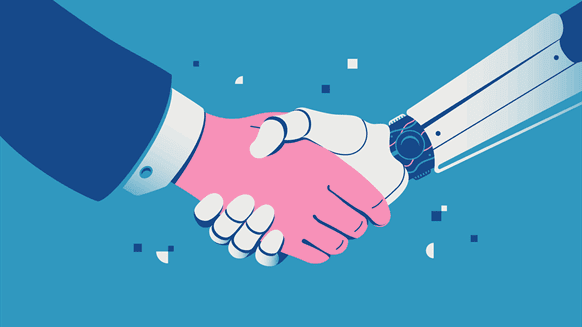Anyone in an aggressive search mode should use all available streams to be hired.
That’s what Christopher Melillo, the Founder and Managing Partner of the Dallas, Texas, based Kaye/Bassman Energy Practice, told Rigzone in an exclusive interview, when asked if oil and gas professionals should use artificial intelligence (AI) to get hired.
Melillo added, however, that using AI for petroleum engineering or geoscience positions is less likely to produce successful results.
“This is primarily due to the lack of knowledge or learning that AI has so far experienced specific to the industry,” he said.
“For example, a drilling engineer who has worked one basin but does not label the formation type, but has named the basin itself, may get passed up for a role because they have not indicated the type of formation (shale, sand, granite, etc.) but they have named it Green River Basin,” he added.
“Unless a candidate uses very specific formation experience, drilling type, etc. he or she may get passed over as unqualified. It depends on the end user’s reqs./parameters for qualifying,” he continued.
“It takes a human who knows the industry who will be knowledgeable about heavy waterflooding to know that a candidate who has worked another basin that reqs. flooding is a match. The AI will not,” he went on to state.
Melillo told Rigzone that there is still a lot of art that goes into matching an oil and gas professional with a role and an organization.
“If the aforementioned engineer has written an extensive resume/CV that details not only what formation, counties, and types of drilling executed, he or she will most likely get selected for an interview,” he said.
“However, we are now entering a space where the seasoned veteran will have a 10-page resume. AI is an excellent tool to identify a few people that you didn’t know, but if the user is lazy, they will miss out on many well qualified candidates as it still takes a human to identify the similarities on a role with the candidate,” he added.
In another exclusive interview, Gladney Darroh – an energy search specialist with 47 years of experience who developed and coaches the interview methodology Winning the Offer, which earned him the ranking of #1 technical and professional recruiter in Houston for 17 consecutive years by HAAPC – told Rigzone that, if oil and gas professionals “feel AI would be helpful to them in creating an accurate and more robust presentation of the truth regarding their education, experience, and competence, then they should use AI”.
Darroh – who is the Founding Partner and President of Houston, Texas, based Piper-Morgan Associates Personnel Consultants – warned, however, that these professionals “should not use AI to help them create an ‘I fooled you’ resume”.
Asked what he meant by this, Darroh told Rigzone, “what I mean is, people should not pad their resume by using AI to cleverly wordsmith their resume to create a false picture that leads a reader to believe an applicant’s education, professional credentials, work experience, job titles, and job functions are more than what they actually have”.
“This is dangerous and people will get killed this way. Unfortunately, AI will easily aid a bad actor to be a successful imposter. Companies will have to become really good at spotting a ‘suspect resume’ because the fact is there are people, more than you might think, who will use AI in a fraudulent way,” he added.
“You can bet there will also be AI software developed to spot suspect resumes that companies will utilize,” Gladney told Rigzone.
Source: www.rigzone.com






